In the realm of real estate, landlords and investors often seek opportunities that balance profitability with a positive impact on the community.
Low-income housing offers a unique proposition, particularly in areas like Westminster, CO. Not only can it provide stable returns, but it also addresses pressing community needs.
This blog post will explore ways landlords in Westminster can benefit from investing in low-income housing.
Benefits of Affordable Housing
Affordable housing is not just a social good; it can be a lucrative investment for landlords. By offering affordable apartments, landlords can create a win-win situation.
For starters, they attract a targeted tenant base, including families and individuals with financial assistance, which ensures a consistent demand for their properties.
These units become homes for Westminster residents who might otherwise be priced out of the market, thus fostering a sense of stability and community engagement.
Furthermore, providing affordable housing contributes to the community's well-being. It's not just about offering a place to live; it's about enhancing the quality of life for Westminster residents. The ripple effect of improving housing accessibility can lead to increased property values and a more stable rental market.
By investing in affordable housing, landlords play a crucial role in making Westminster a more equitable place to live.
Finally, affordable housing can enhance a landlord's reputation. In today's socially conscious world, being seen as a community-oriented landlord can attract more renters. This positive impact can lead to word-of-mouth referrals and long-term tenant relationships, reducing turnover and vacancies.
Financial Assistance
Apart from the social benefits, there are substantial financial incentives for landlords who invest in affordable housing. The city of Westminster, along with other organizations, offers financial assistance to support affordable housing initiatives.
These incentives can significantly offset the costs associated with maintaining and upgrading low-income housing.
Tax credits and other financial incentives can enhance profitability. For instance, rent subsidies from programs like Section 8 ensure landlords receive a steady income stream. These subsidies cover a portion of the rent, reducing financial risks for landlords and making the investment more attractive.
Additionally, participation in affordable housing programs can unlock access to funds for property upgrades and maintenance.
By tapping into these resources, landlords can keep their properties in top condition without bearing the full financial burden.
Attracting a Targeted Tenant Base
One of the primary advantages of low-income housing is the ability to attract a targeted tenant base. Families and individuals with financial assistance form a stable and reliable tenant pool. These renters often stay longer, reducing turnover and vacancy rates.
Landlords offering affordable housing can attract renters who are committed to the community and are more likely to become long-term tenants.
This stability benefits landlords as it reduces the costs associated with tenant turnover and unit vacancies.
By targeting a specific tenant base, landlords can tailor their marketing strategies and property upgrades to meet the needs of potential renters.
Whether it's highlighting proximity to schools, parks, or public transportation, understanding the priorities of this demographic can enhance marketing efforts and attract more applicants.
Effective Property Management
Managing affordable housing requires a nuanced approach to property management. From rent collection to tenant screening, each aspect demands attention to detail and compliance with regulations.
Fortunately, landlords can benefit from working with experienced property management companies that specialize in affordable housing.
Outsourcing property management allows landlords to reduce their administrative burdens significantly. These companies are well-versed in the complexities of affordable housing regulations and can ensure compliance, reducing the risk of legal issues.
Furthermore, affordable housing property management often includes providing support services such as job training and education programs.
By offering these services, landlords can enhance their reputation and attract renters who value community engagement and support.
Positive Community Impact
Investing in low-income housing in Westminster helps landlords contribute positively to the community. Affordable housing improves the quality of life for Westminster residents by providing safe and stable living environments. This leads to a stronger sense of community and increased social cohesion.
When landlords partner with local organizations and community groups, they can ensure their affordable housing initiatives align with the needs of the community.
By engaging with stakeholders, landlords can build trust and foster relationships that benefit both the residents and their properties.
Unlock the Benefits of Low-Income Housing in Westminster
Investing in low-income housing in Westminster, CO offers landlords a unique opportunity to achieve both financial success and community impact.
By leveraging financial incentives, attracting a targeted tenant base, and working with PMI Mile High you can create a sustainable and profitable business model.
The positive ripple effects of affordable housing extend beyond individual properties, contributing to a thriving and equitable Westminster for all its residents.


